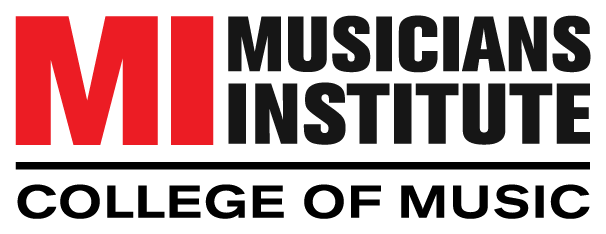1. Develop a Strong Foundation in Audio Fundamentals
To excel as an audio engineer, you need a solid understanding of audio fundamentals. This includes knowledge of sound theory, signal flow, acoustics, and the technical aspects of audio equipment.
Solution:
- Formal Education: Enroll in a reputable program like the Audio Engineering program at Musicians Institute. Our curriculum covers essential topics, providing you with a comprehensive education in audio engineering.
- Online Resources: Supplement your formal education with online courses, tutorials, and articles on audio fundamentals. Websites like Coursera, Udemy, and YouTube offer valuable resources.
- Hands-On Practice: Regularly practice with audio equipment and software to reinforce your understanding and gain practical experience.
2. Master the Tools of the Trade
Audio engineers must be proficient with a variety of tools and software used in the industry. This includes digital audio workstations (DAWs), mixing consoles, microphones, and outboard gear.
Solution:
- Digital Audio Workstations (DAWs): Learn to use industry-standard DAWs like Pro Tools, Logic Pro, and Ableton Live. These are essential tools for recording, editing, and mixing audio.
- Recording Equipment: Gain hands-on experience with microphones, preamps, and other recording gear. Understand how different equipment affects sound quality and tone.
- Plugins and Effects: Familiarize yourself with plugins and effects used for processing audio, such as EQ, compression, reverb, and delay.
3. Build a Diverse Portfolio
A strong portfolio showcasing your work is crucial for attracting clients and employers. Your portfolio should demonstrate your versatility and ability to handle different audio engineering tasks.

Blog Post
"*" indicates required fields
By submitting this form, I authorize Musicians Institute (MI) to make or allow the placement of calls, emails, and texts to me at the phone number that I have provided, including through the use of automated technology, or a prerecorded or artificial voice. I understand that I am not required to provide my phone number as a condition of purchasing any property, goods, or services. I agree to the terms of MI’s Privacy Policy. MI will not sell or rent your information to third parties, and you may unsubscribe at any time.
Solution:
- Record Various Projects: Work on a variety of projects, including music recordings, podcasts, voiceovers, and sound design for film and video games. This diversity will showcase your range of skills.
- Collaborate with Artists: Collaborate with musicians, bands, and other audio professionals to expand your network and gain experience.
- Showcase Your Best Work: Curate your portfolio to highlight your best work. Include high-quality recordings that demonstrate your technical skills and creativity.
4. Network and Seek Opportunities
Networking is essential in the audio engineering industry. Building relationships with other professionals can lead to new opportunities, collaborations, and career growth.
Solution:
- Industry Events: Attend industry events, conferences, and trade shows to meet other audio professionals and stay updated on the latest trends and technologies.
- Professional Organizations: Join organizations like the Audio Engineering Society (AES) to access networking events, workshops, and resources.
- Internships and Assistant Roles: Seek internships or assistant roles in recording studios, live sound venues, and post-production facilities. These positions provide valuable hands-on experience and opportunities to learn from experienced engineers.
5. Stay Updated and Keep Learning
The audio engineering field is constantly evolving with new technologies and techniques. Staying updated and continually learning is crucial for maintaining your competitive edge.
Solution:
- Continued Education: Take advanced courses and attend workshops to deepen your knowledge and skills. Musicians Institute offers continuing education programs to help you stay ahead.
- Industry Publications: Subscribe to industry magazines, blogs, and podcasts to stay informed about the latest developments in audio engineering.
- Experiment and Innovate: Experiment with new tools, techniques, and workflows. Innovation and creativity are key to standing out in the field.
Conclusion
Pursuing a career in audio engineering requires dedication, continuous learning, and a passion for sound. By developing a strong foundation in audio fundamentals, mastering industry tools, building a diverse portfolio, networking, and staying updated, you can set yourself up for success in this dynamic field.
At Musicians Institute, our Audio Engineering program is designed to provide you with the skills and knowledge needed to excel in the industry. With experienced instructors and state-of-the-art facilities, we offer an ideal environment for aspiring audio engineers to thrive.
Ready to take your audio engineering skills to the next level? Contact Musicians Institute today to learn more about our Audio Engineering program and how we can help you achieve your career goals.

